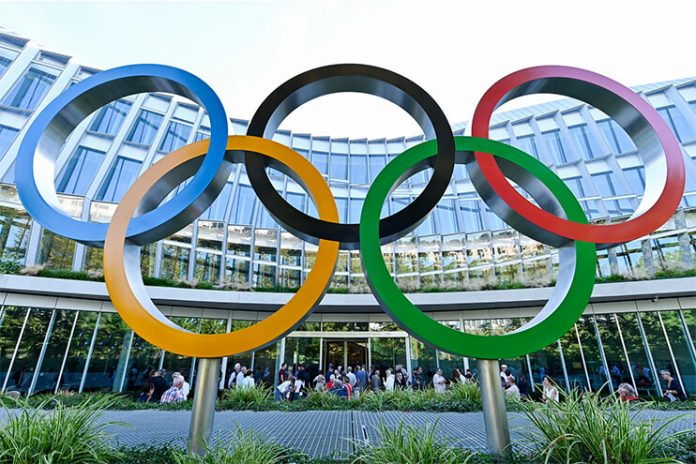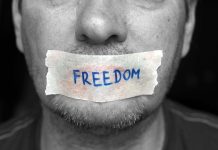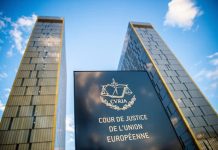This article is written by Somya Jain, from the Vivekananda Institute of Professional Studies. The article analyses the recent relaxation of rules by the International Olympic Committee for governing the political demonstration made by the players.
Table of Contents
Introduction
Olympics is one of the most recognised platforms for showcasing one’s talent accumulated in sports. The fundamental objective of Olympism, which refers to the philosophy of the Olympic games, is to place sports as a means to develop humankind, preach peace in society through fair competition and international cooperation. But over the years, the players have sought to grab the opportunity of this platform to raise awareness regarding various social injustices and showing their protests against them through several modes of social media. Even after a display of rigorous displeasure by the International Olympic Committee (hereinafter IOC), the athletes fail to adhere to their guidelines and continue to indulge in political demonstrations at the Olympics. However, this practice took a slight turn in this years’ Olympics as the prescribed authority approved to give some relaxation to the players to present their thoughts on this platform.
Political agendas raised in the Olympics over the years
Before delving into the current situation of political demonstrations in the 2021 Olympics, it is essential to analyse the historical background of these demonstrations. There have been many instances where the players have shown their stance regarding the prevailing social concerns. Although the list of political protests at the Olympics is long-lasting, some of the most highlighted events can be highlighted.
- The first-ever instance of the political demonstration was noted in the year 1906 Olympic Games in Athens. An Irish track and field athlete Peter O’Connor scaled a 20-foot flagpole in the stadium and waved a green flag with the inscribed words “Erin Go Bragh” which originally meant Ireland forever. This stunt was enacted due to the outrage of Connor for having to perform for Great Britain after a decade-old Irish War of Independence.
- One of the most publicised cases was seen in the 1968 Summer Games wherein 200 metres gold medalist Tommie Smith and bronze medalist John Carlos raised their fists during the medal presentation to show their support for the “Black Power” movement. As a result, both were expelled from the Mexico Games.
- Olympics have not only been used as a ground for protest by the athletes but rather States have also indulged in such protests. In the 1980 Olympic Games in Moscow, the United States under the presidency of Jimmy Carter boycotted the Olympic games after the Soviet Union refused to withdraw its troops from Afghanistan. Further, Canada, Japan, and West Germany also joined the United States in its boycott.
- While reverting back to the current situation of the 2021 Tokyo Olympics, the first political demonstration was initiated by Raven Saunders who won a silver medal in the game of women’s shot put in the 2021 Olympics. In the midst of the medal ceremony, she raised her hands and formed an X while posing for a photo on the podium. According to Saunders, X represented “the intersection of where all people who are oppressed meet”. After recognising herself as black and gay, she claimed that this victory was more than just herself and encouraged people that though there is a large disparage and prejudice, the struggle takes you to the stands of victory.
- Similarly, U.S. hammer thrower Gwen Berry raised her right fist twice in the game. Before this demonstration, she also held up a shirt that read “Activist Athlete”. This representation symbolised a stand against racial and social injustice. Following the steps of Saunders, an American fencer Race Imboden also raised his hands forming an X. According to him, his demonstration symbolised solidarity for each other in ending gun violence. Ironically, both the athletes were punished by the US Olympic Committee (hereinafter USOC) for participating in the podium protest in the Pan Am Games in 2019. They both took a knee while the medal ceremony was conducted and subsequently they were put on probation by the USOC for 12 months.
The dispute underlying the 2021 Olympics
Up until recently, the Olympics followed a trend of disallowing the players for indulging in any political demonstrations or religious and social propaganda. But, on 2nd July 2021, the International Olympic Committee allowed some forms of demonstrations to respond to the growing concerns of the players. Let us discuss these changes and the exceptions brought by the IOC.
The Olympic Charter
The Olympic Charter (hereinafter the Charter) is said to be the codification of all the rules and bye-laws formulated by the IOC. It further establishes the fundamental principle of Olympism. Rule 50.2 of the Charter specifies that “No kind of demonstration or political, religious or racial propaganda is permitted in any Olympic sites, venues or other areas”. Thereby, from 1908, this Rule has been prevalent and is imposed on all the players.
The main objective of the IOC in implementing the said Rule was to create a sense of solidarity for sports among the players. Since the athletes, participating in the games, belong to different cultures, religions, States, etc. the IOC aimed to separate political agendas from the noble cause of sports. Accordingly, this would prevent over-commercialisation and political controversies from being instituted in the concept of Olympism.
As far as consequences for violating Rule 50 of the Charter is concerned, IOC has reserved the power to disqualify the person or the delegation concerned or withdraw the accreditation granted to the person or the delegation. However, the Charter does not specify any particular punishment for violating Rule 50 by taking part in any type of political demonstration during the Games.
New reforms
As per the new reforms brought by IOC in regards to the increasing protests, a reasonable amount of relaxation is provided to the players to express themselves through demonstrations at particular places. This change was comprehended after conducting a quantitative study, that was initiated by the IOC Athletes’ Commission (hereinafter IOC AC) in June 2020, surveyed around 3547 athletes, and recommendations were also taken from leading sports and Human Rights lawyers. The study itself appears to have been commenced following a 10 June 2020 resolution by the IOC Executive Board, condemning racism and other forms of discrimination, in response to the widespread international protests triggered by the killing of George Floyd.
Relaxations and exceptions
According to the new guidelines, players have the freedom to express their views at the following places:
- In the mixed zone, including before the media;
- In the International Broadcasting Centre (IBC) or the Main Media Centre (MMC), including when speaking to the media;
- While conducting a press conference in the venue or in the MMC;
- During interviews;
- At team meetings;
- In traditional media or digital media;
- Through social media channels;
- On the playfield before the commencement of the competition like during the introduction of the athlete or the team.
In contrast, there are some specific exceptions provided by the IOC wherein the players are prohibited from showcasing their politically influenced opinions and demonstrations. These exceptions are:
- During official ceremonies like Olympic medal ceremonies, opening and closing ceremonies, etc.
- During competition on the playfield.
- In the Olympic village.
Guidelines for political demonstrations
Now, while expressing these political demonstrations, athletes are expected to comply with the Olympics principles that are enshrined in the Charter itself. Accordingly, the guidelines are:
- The expressions demonstrated should be in consonance with the Fundamental Principles of Olympism enumerated in the Charter itself.
- These gestures should not be targeted, directly or indirectly, against people, countries, organisations, and their dignity.
- It should not be disruptive in nature. For example, expressions made while the national anthem of another country was ongoing or physical interference with the introduction of another athlete by way of unfurling a flag, a banner, etc.
- It should not prohibit or limit the rules of the relevant National Olympic Committee (NOC) and the competition regulations of the relevant International Federation (IF).
In furtherance of the above guidelines, IOC also highlighted some basic Principles of Olympism in addition to other directions. Principles such as “social responsibility”, “respect of universally and fundamentally ethical principles”, “harmonious development of humankind” and “human dignity” forms the basis of the underlying guidelines and must be strictly adhered to by the players. If anyone is found violating these Principles, he will be acting contrary to the Principles of Olympism and will be eligible for prescribed punishment.
Sanctions
Considering the violation of any of the above guidelines, the player will have to bear its consequences. As per Rule 59.2 of the Charter, sanctions can be issued against such persons for violating the same. The prescribed sanctions are:
- The players violating the provisions will be subjected to permanent or temporary ineligibility or expulsion from the Olympics Games.
- The IOC can withdraw or disqualify any accreditation given to the concerned players.
- If there is any disqualification or exclusion of any athlete then any medals obtained by that player will be taken away in regards to the infringement of the Charter.
- Any benefits of rankings obtained in relation to other events, from which the athlete is not disqualified or excluded, will also be removed along with any medals obtained on the basis of that ranking.
Criteria for evaluation by the IOC
When an athlete is charged with violating the provisions of the Charter dealing with political demonstration, the IOC Disciplinary Commission will be responsible for evaluating that particular case. While evaluating, the commission should ensure that the rights of the athletes like the right to privacy, the right to be heard, etc will remain intact. Further, the athlete should be provided with a representative belonging to the IOC Athletes’ Commission. The IOC must take into account various factors to evaluate a particular case. Some of these factors are:
- The commission must consider the degree of disruption caused due to the politically influenced actions in the Olympic village or during the official ceremony.
- To look whether the expression incited national, religious, or racial hatred subject to the prohibition under international human rights law and whether that resulted in instilling discrimination, hostility, or violence.
- To protect the principles and values of Olympism, taking disciplinary action is essential.
- Whether the expression was a one-time event.
- Whether the concerned athlete undertook such an act at the behest of another or voluntarily.
- Whether another athlete complained about the expression.
Conflicting views related to Rule 50
Although the relaxations brought by the IOC provide the players with the benefits of expressing themselves, they are not satisfied with the current reforms. Many athletes protested against the new reformative rules stating that the changes do not reflect the commitment to freedom of expression as a fundamental human right nor to racial or social justice in global sports. Recently, more than 150 athletes, academics, and social justice advocates signed an open letter demanding changes to Rule 50 and urging the IOC to “refrain from imposing sanctions on athletes protesting and demonstrating.” Some of the major concerns addressed through the letter are as follows:
- The signatories demanded that the IOC should refrain from using sanctions against the athletes who are demonstrating and protesting in any Olympic venues or sites including the podium as well. They further stated that these protests do not support any hate speech rather they protect social and racial justice.
- According to the signatories the word used in Rule 50, “racial propaganda” should be removed from the Charter and to align the Rule with internationally recognised human rights law.
- They demanded to amend the Athletes’ Rights & Responsibilities Declaration in accordance with the internationally recognised human rights framework.
- At last, they demanded to add an Eighth Principle of Olympism focusing specifically on human rights.
On the other hand, the IOC advocates that the new version of the guidelines provides a wide range of opportunities for athletes to express their opinions at various places. The two major arguments raised by the IOC were:
- Rule 50 of the Charter should stay intact to preserve the neutrality of the games.
- Further, there are several athletes who support Rule 50 and do not consider social commentary or demonstration at specific areas including podiums or the field of play as appropriate.
Freedom of free speech and expression : a supposed sham
The concept of free speech and expression has been instilled in international human rights law. According to Article 19 of the United Nations Universal Declaration of Human Rights, every person has the right to freedom of opinion or expression that includes freedom to hold opinions without interference and receive or impart any information through any media regardless of any frontiers. Therefore, political speeches in sports should be encouraged to ensure individual dignity. Merely limiting political speech to press conferences and other such places acts as an impediment in providing the right to free speech and expression. It is nothing but a colourable exercise to show solidarity to the protests, but, in reality, is an act of non-concern.
Considering the fundamental nature of Freedom of Free Speech and Expression, the IOC summarised its understanding of this legal phenomenon as:
- Although freedom of speech and expression is a universally recognised fundamental human right, it is not absolute. Such a right comes with duties, responsibilities, and obligations.
- Freedom of speech and freedom of expression may be restricted under a very limited set of conditions, the assessment of which is delicate and varies depending on the circumstances.
The IOC has agreed to the very existence of the freedom of speech and expression yet fails to recognise it completely as a guaranteed right of individual dignity. Restricting the players from expressing themselves freely at several places shows the denial of the Committee in providing the right absolutely. Thereby, the IOC hid under the garb of a supposed sham of free speech and expression.
Need for further reforms to fill the gap underlying the dispute
It cannot be doubted that none of the Fundamental Human Rights are left unregulated. There should be some regulations to guide the usage of these rights to ensure the necessary balance in society. Similarly, while practising the right of speech and expression in sports, certain guidelines should be effectuated to not impact the athletic culture negatively and protect it from political influence.
The Disciplinary Committee should essentially look for the contents and the intentions behind a particular demonstration. Free Speech should be imparted to all the players irrespective of the place provided that the prominent Principles of the Olympism is observed while practising that right. Values that govern the Freedom of Speech include human dignity (principle 2); inclusion (principle 3); non-discrimination (principles 4 and 6); equality (principles 4 and 6); and fraternity (principle 4). Thereby, any speech violating the above-mentioned Principles can call for disciplinary action.
Many a time, there are situations whereby the players take a stance while being politically motivated without any direct ties to the issue. They may not have a direct relation to the stand or expression that they are demonstrating yet they indulge in such political issues. Such speech should be restricted for the effective working of the free speech model and respecting the privileges given by the IOC. Such speeches destruct the entire event by inviting political intervention and therefore should be prohibited. Thus, a balance should be created between the rights granted and their unwarranted usage. Restricting the Freedom of Speech without any reasonable cause is erroneous in itself. On the other hand, guaranteeing the rights without creating a watchdog for the same is absurd.
Conclusion
Raising voices against the prevalent social and political issues has led to many advancements in society. The Freedom of Speech and Expression has been granted to the people for voicing their concerns and restricting them without any proper reasons should not be practised. The value that the Olympics hold, empowers the players to share their opinions and views and encourages people by acting as role models. The atrocities faced by the players when brought to such a huge platform create a much larger impact on society than other social publications. It is true that sports and politics cannot be separated and thereby both should be inclusive in nature. By this, it does not mean that negative speech should also be promoted. Players having concocted political agendas shall not be entertained. Therefore, the Principle of neutrality, which is the main objective of the Olympic games should be observed with regard to the Right of Free Speech and Expression irrespective of unreasonable limitations.
References
Students of Lawsikho courses regularly produce writing assignments and work on practical exercises as a part of their coursework and develop themselves in real-life practical skills.
LawSikho has created a telegram group for exchanging legal knowledge, referrals, and various opportunities. You can click on this link and join:
 Serato DJ Crack 2025Serato DJ PRO Crack
Serato DJ Crack 2025Serato DJ PRO Crack










 Allow notifications
Allow notifications


